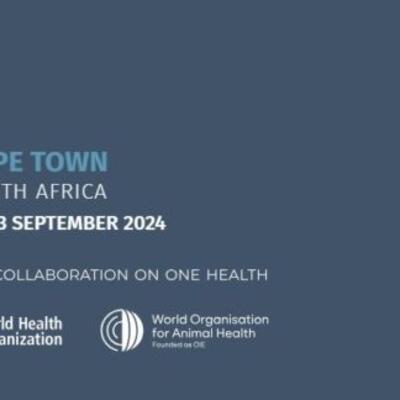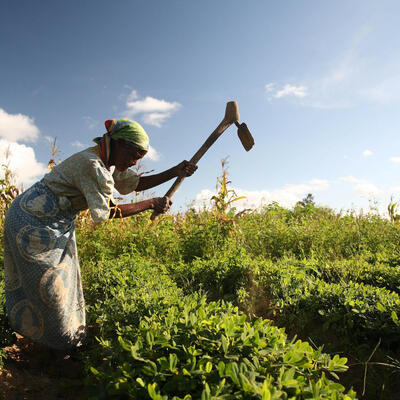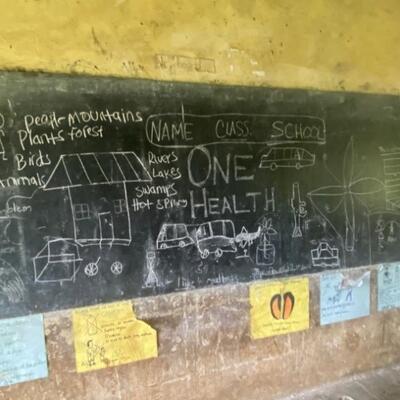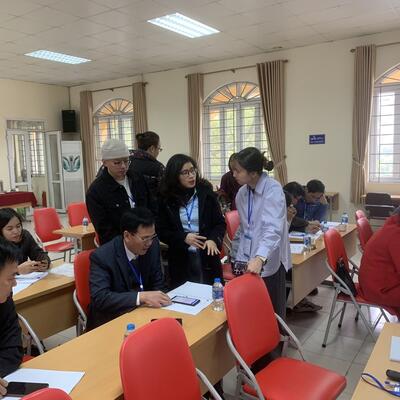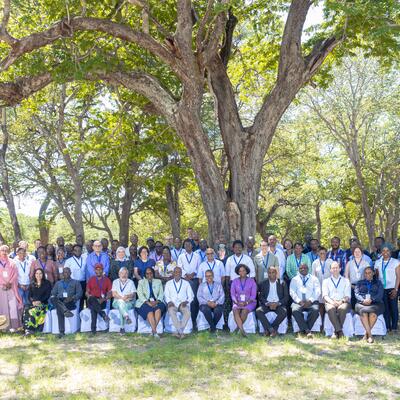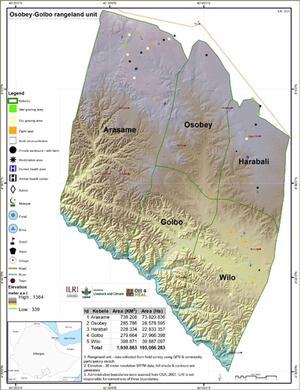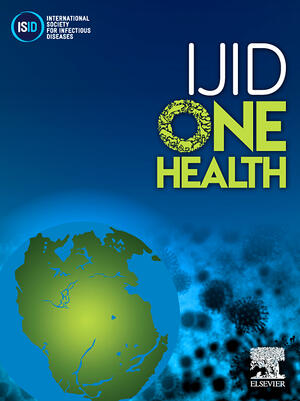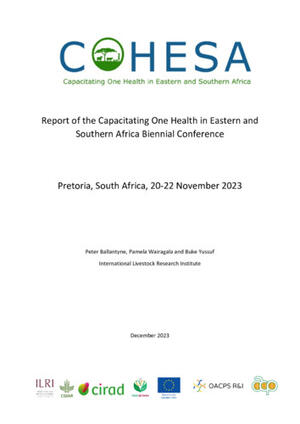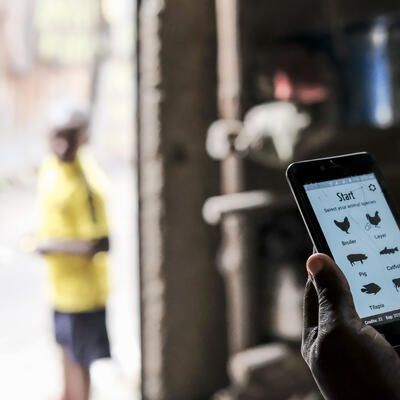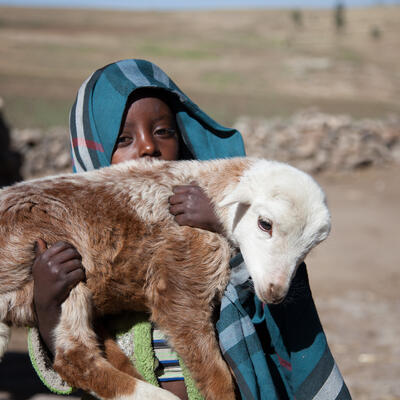

Capacitating One Health in Eastern and Southern Africa – evidence shows appetite and pathways for institutional change
One Health – an approach to sustainably balance and optimize the health of people, animals and ecosystems – is increasingly recognized as essential if we are to tackle and reduce some of the most pressing impacts on livelihoods and health for people, animals and ecosystems.
One Health is a classically collaborative response to a set of ‘wicked’ problems – complex, interconnected and not fully understood – that can’t be easily tackled through traditional sequential or sectoral “siloed” approaches. While individual health threats may require specific technical skills to address them, responses to increasingly multidimensional challenges like COVID-19, Ebola, avian influenza or the spread of antimicrobial resistant pathogens require collective, institutional and sometimes society-wide actions.
Achieving these collaborative responses poses institutional, societal and behavioral challenges that can only be overcome through different mindsets and renewed capacities.
A recent conference of partners in the COHESA (Capacitating One Health in Eastern and Southern Africa) project shone a spotlight on exactly these institutional and behavioral strategies, providing a platform for the country teams to share progress and lessons.
Convened by ILRI and hosted by the University of Pretoria, this first biennial conference brought together project partners and ‘multipliers’ (local project implementors) to take stock of progress and set priorities for the coming years. Over three days in November 2023, 85 people from 13 countries reviewed progress and activities in four work packages (see image below), shared innovations and set out priorities for the coming years.
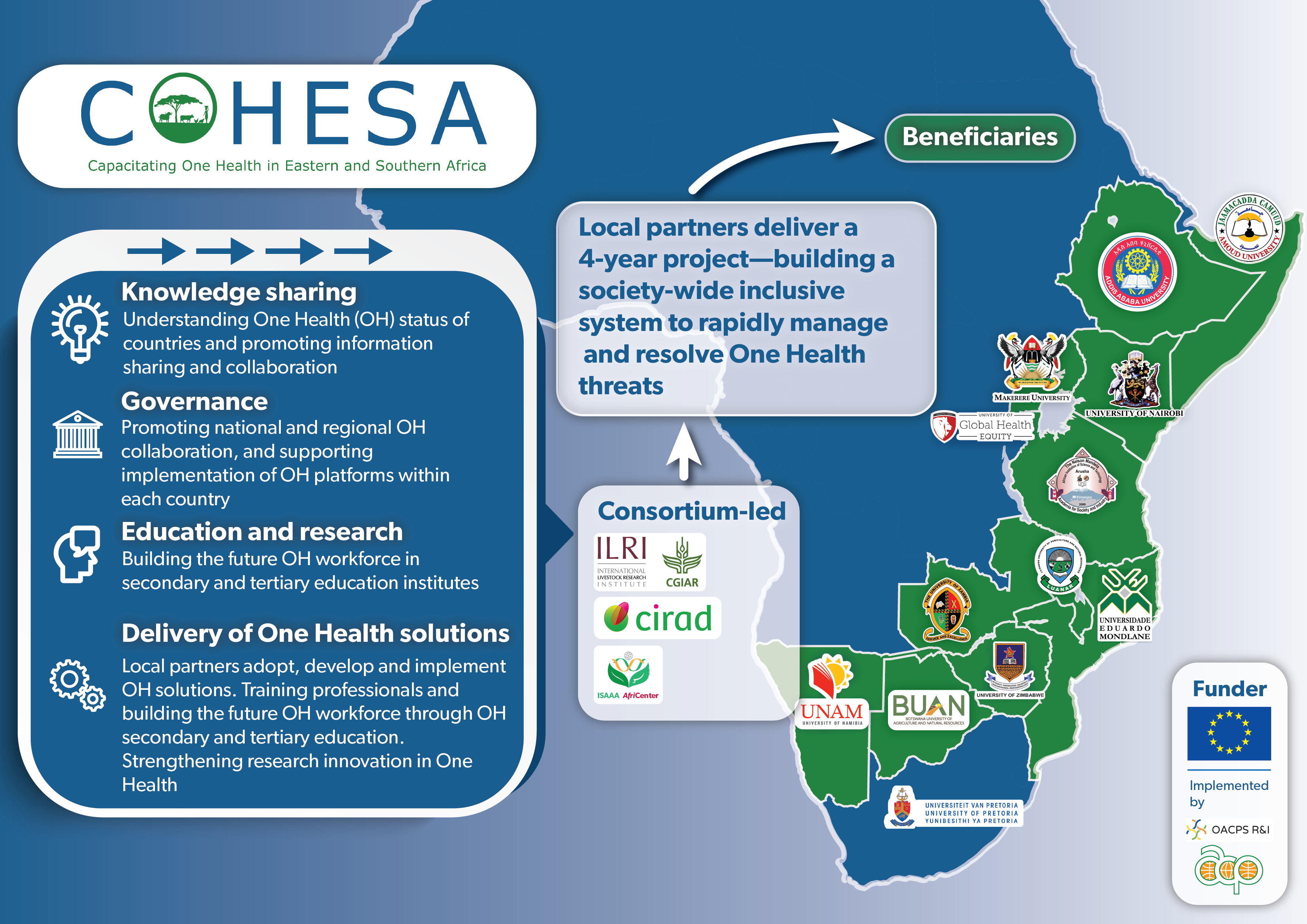
Project work packages and country focus
Insights emerging
From the huge amount of information shared, some key evidence of results is emerging:
One Health baselines and maps: COHESA teams in 9 countries have carried out ‘NetMapping’ exercises, revealing country goals, the policy landscape, key actors, influencers and linkages. In several countries, these showed actors missing from One Health planning, and revealed over-representation of some issues, zoonotic diseases for example, or gaps, such as missing expertise on Ecohealth. Alongside this mapping, the teams produced baseline studies in each country to define the current One Health state of affairs as well as to identify education, training, research and policy gaps that need filling. Together these show up gaps and opportunities for COHESA and other actors to advance the One Health agenda through capacity development, policy advocacy and collaboration.
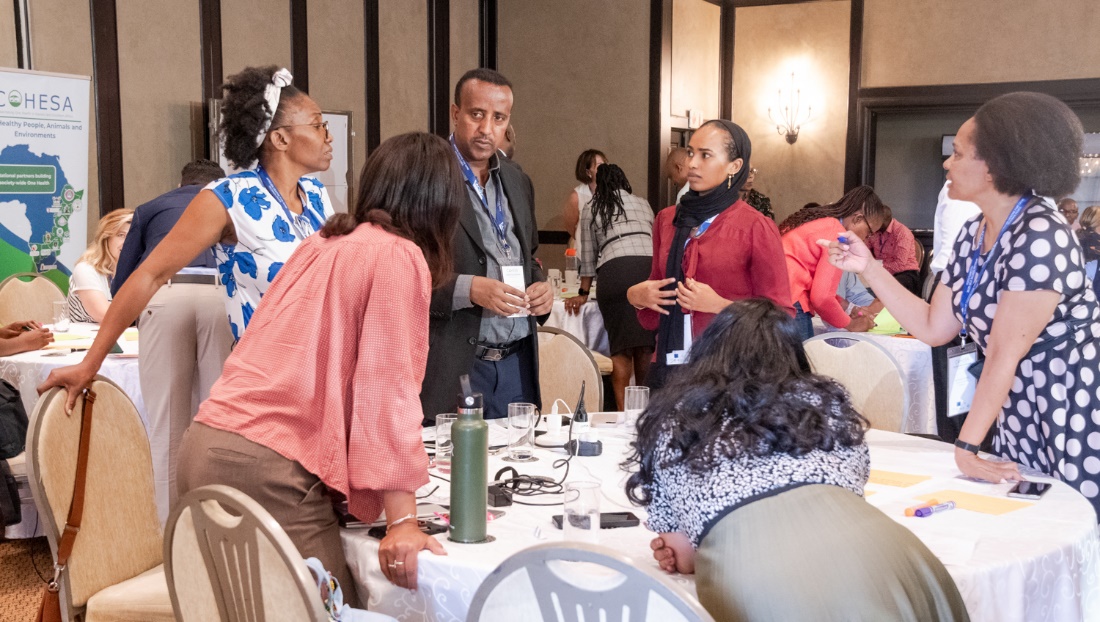
Sharing country experiences
 One Health governance: Given the collaborative basis for One Health as a pre-emptive early warning and response approach, the various country teams are using different strategies to translate their One Health ‘maps’ into appropriate policies, structures and mechanisms that can facilitate inter-agency collaboration. These experiences, where some countries have established ‘One Health platforms,’ show the importance of inclusion – different types of actors, from different disciplines and sectors, operating at different levels are all required.
One Health governance: Given the collaborative basis for One Health as a pre-emptive early warning and response approach, the various country teams are using different strategies to translate their One Health ‘maps’ into appropriate policies, structures and mechanisms that can facilitate inter-agency collaboration. These experiences, where some countries have established ‘One Health platforms,’ show the importance of inclusion – different types of actors, from different disciplines and sectors, operating at different levels are all required.
They also reinforce the need to break down silo’s, to raise policy awareness and foster effective communication, to engage the media, and to consider where best to locate such governance efforts – in a president or prime minister’s office, in a standalone secretariat, in a ministry… – and how funding and ownership can be raised across a very diverse landscape. A key activity reported by all countries is One Health strategy and plan development, convening the various actors to make the case for investment and expected outcomes. The word cloud shows critical success factors for One Health governance identified by participants.
One Health education: While recent years have seen the country teams examining and refining One Health curricula and offerings across higher education – to raise up future expertise – the Pretoria workshop highlighted actions some countries are taking to bring One Health into schools. These different cases illustrate how the inter-linkages among different health issues can be brought into primary schools. Getting there, so far, has been achieved through partnerships with NGOs, with local schools and teachers, and ultimately, by working with Ministries of Education as well as teacher training colleges. The results, in just a few countries so far, suggest promising pathways for wider uptake.
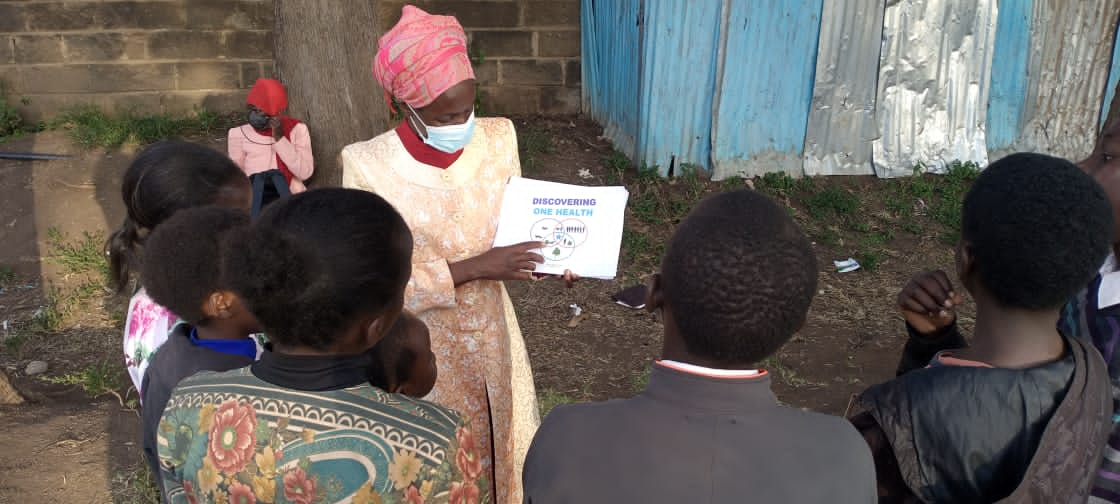
Inspiring children in Kenya to value One Health (source: https://www.onehealthlessons.org
One Health solution sandpits: Typically associated with children playing, sandpits have been taken up by researchers and academics as intensive collaboration exercises. Adapted from the HORN project, several country teams have adopted this approach to bring multidisciplinary teams together to pitch research ideas that can be supported to overcome specific gaps or constraints identified. So far, four countries have launched such processes with results expected in the near future.
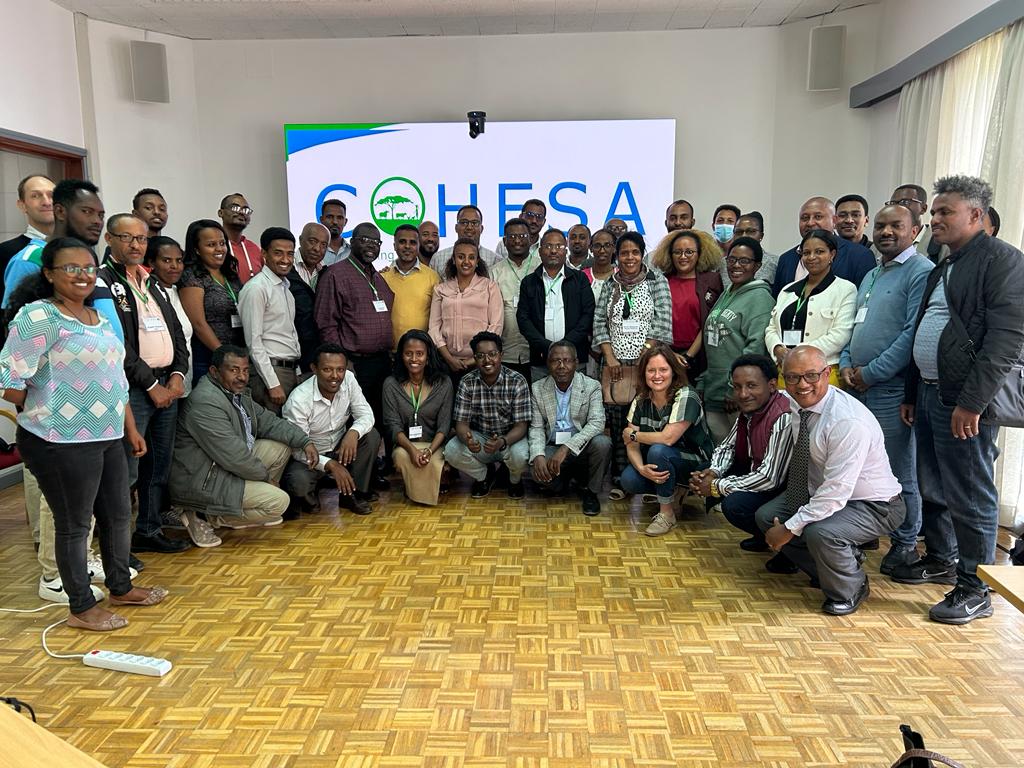
Participants in the Ethiopia sandpit on AMR
Looking forward
Pathways to institutional change are often complex and winding so this event’s focus on country-to-country exchanges was welcomed as a way for teams to get exposed to both promising opportunities as well as pitfalls to avoid. It also served to reinforce cross-country and cross-region collaboration.
The event timing half-way through the project also offered a good opportunity for country teams to look to the coming years, how they can accelerate activities and results and also identify critical elements of ‘exit strategies’ at country level. Beyond fundraising for continuation or complementary projects, participants emphasized in-country advocacy and alliance/network building as important to sustain momentum post-COHESA. They also identified a number of ‘products’ that need to be in place to ensure that key evidence, messages and collaborations continue to have outcomes beyond the project end.
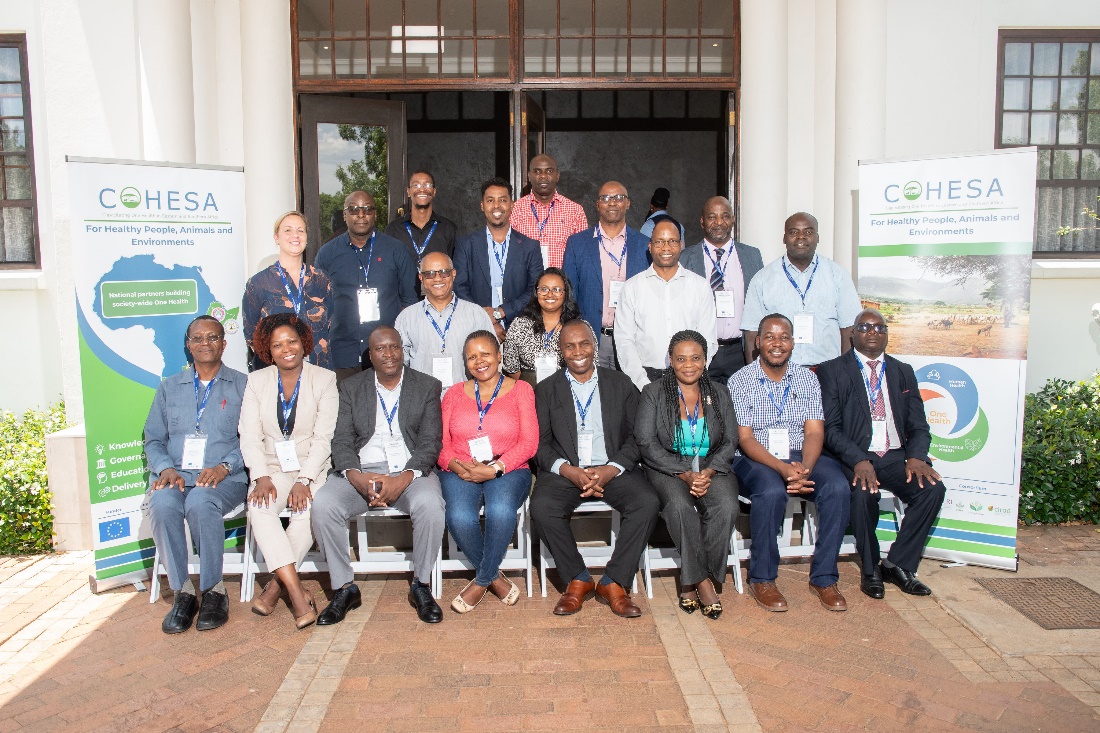
Country ‘multipliers’ drive the project
About COHESA
COHESA is led by the International Livestock Research Institute (ILRI), the French Agricultural Research Centre for International Development (CIRAD - Centre de coopération internationale en recherche agronomique pour le développement) and the International Service for the Acquisition of Agri-biotech Applications (ISAAA) Africentre.
The project ‘Capacitating One Health in Eastern and Southern Africa (COHESA)’ is co-funded by the OACPS Research and Innovation Programme, a program implemented by the Organization of African, Caribbean and Pacific states (OACPS) with the financial support of the European Union
Download a report of the discussions
See reports and other project outputs
You may also like
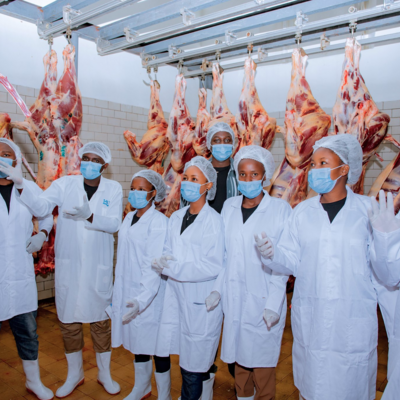
ILRI News
COHESA One Health training equips university students to manage infectious diseases in Africa
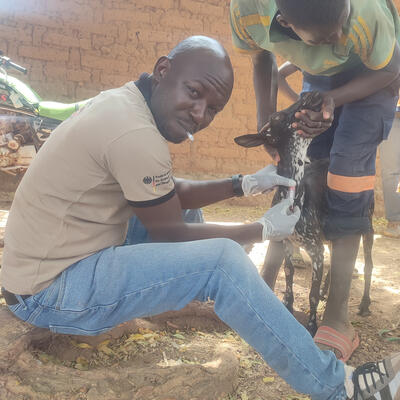
ILRI News
Investigating the impact of Crimean-Congo hemorrhagic fever (CCHF) in Burkina Faso using One Health
Related Publications
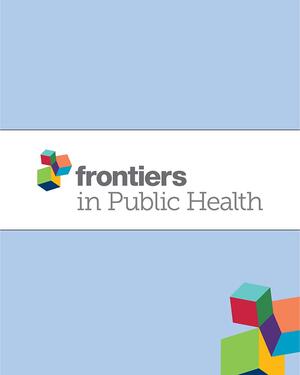
Gender considerations in One Health: a framework for researchers
- Galiè, Alessandra
- McLeod, A.
- Campbell, Zoë A.
- Ngwili, Nicholas
- Terfa, Zelalem G.
- Thomas, Lian F.
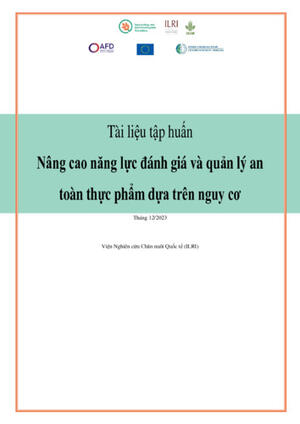
Tài liệu tập huấn nâng cao năng lực đánh giá và quản lý an toàn thực phẩm dựa trên nguy cơ
- International Livestock Research Institute

Report of the regional workshop on One Health operationalization and investment in Southeast Asia
- Lam, Steven
- Chi Nguyen
- Sinh Dang-Xuan
- Unger, Fred
- Thanh Nguyen-Le
- Meeyam, T.
- Hung Nguyen-Viet





